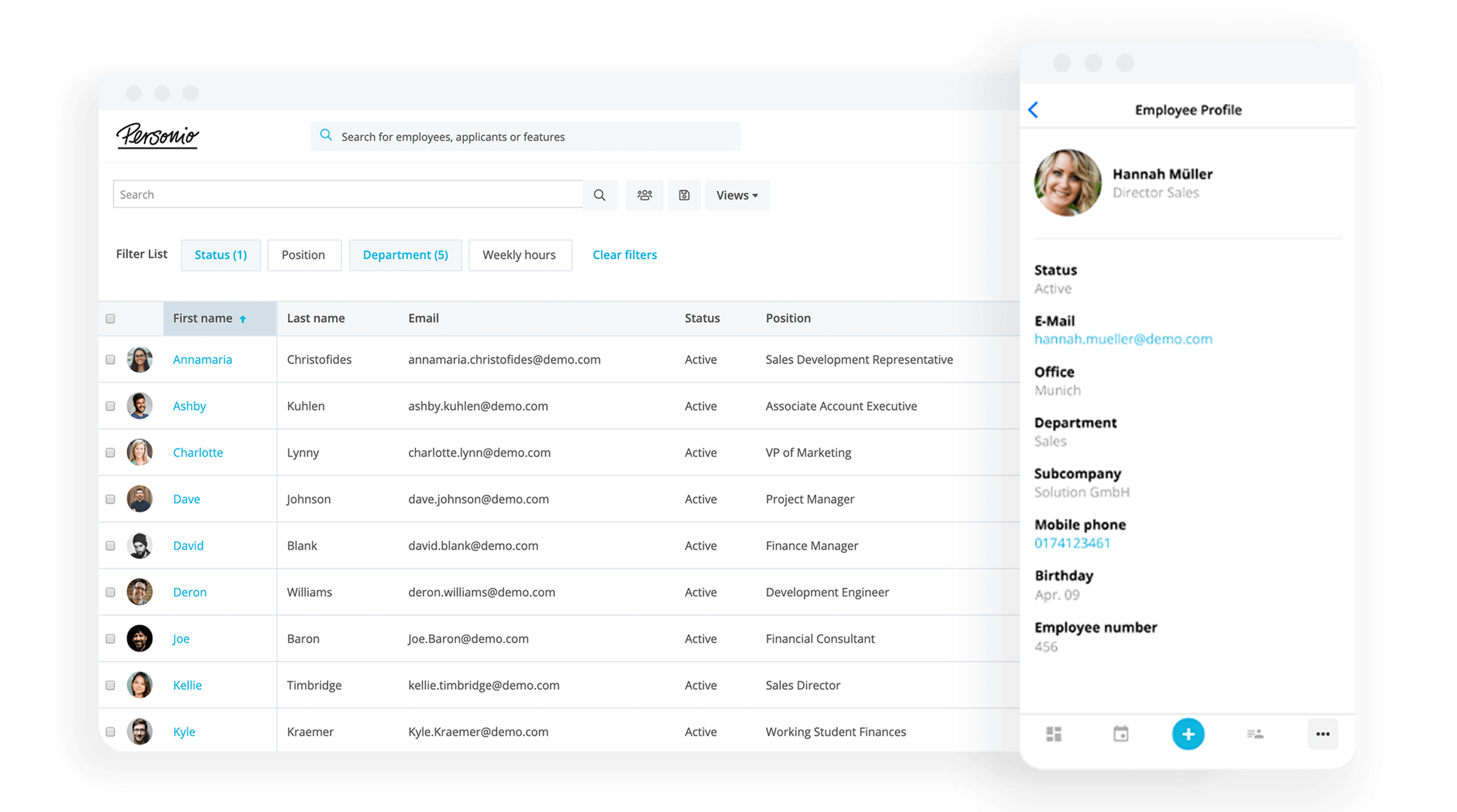Part-time workers: Rights, hours and differences

There’s a legal difference between part-time workers and full-time workers that affects how you write and enforce policies in the workplace. Stay in compliance with UK employment laws by brushing up on your obligations to part time workers — what they are eligible for, their job security, pay schedules and more.
Key facts
Part-timers are defined as employees who work fewer hours than full-time workers but with the same responsibilities.
UK law directs companies to treat full-time and part-time workers equally.
Part-time employees are often paid less annually but have more flexible schedules for social engagements.
Contents
- 1What is a part-time worker?
- 2Benefits of working part-time
- 3What is a full-time worker?
- 4Benefits of working full-time
- 5Full-time vs. part-time: What’s the difference?
- 6Job sharing between part-time workers
- 7Part-time workers’ rights and entitlements
- 8Treatment of part-time workers
- 9Frequently asked questions about part-time workers
- 10Managing part-time employees in the workplace
What is a part-time worker?
UK law defines a part-time worker as someone who works fewer hours than a full-time employee but who performs the same responsibilities. Through the Part-time Workers (Prevention of Less Favourable Treatment) Regulations 2000, a full-time worker cannot be treated better than a part-time worker.
Most importantly, the law lets employers determine the hours classified as part-time along the company’s practices and industry standards. Some businesses consider 35 hours and below to be part-time while others say 30 hours and below is the acceptable standard.
Benefits of working part-time
An employee’s decision to work part-time is often a personal choice. Some of the most common benefits and reasons why employees decide to work part-time include:
1. Higher levels of flexibility
Part-time workers may have other obligations that keep them from committing to 40 hours of work per week. They may balance work with their studies or want to pick up their children from school. Maybe the employee is exploring entrepreneurship or is starting a business in their downtime. The extra flexibility in their schedules helps these employees better manage their work and home lives. It also gives employers flexibility as they plan for the workload of someone who’s working less than a full workweek.
2. More opportunities for career progression
Some companies use part-time positions to keep prospective candidates on the payroll when no full-time roles are available. Many businesses like to promote from within and part-time work gives employees a chance to demonstrate or improve on their skills, making them great candidates for future full-time positions. This method can also save the company resources as they skip the lengthy recruitment, interviewing and training process in favour of someone who already understands the company.
3. Full employment rights without full-time commitment
Part-time employees are afforded the same rights as full-time employees under UK law. There’s no minimum number of hours someone needs to work to qualify for the same benefits and protected rights. Some of these rights include the same pay, equal access to pension schemes and minimum annual paid holiday.
What is a full-time worker?
A full-time worker is an individual who works the minimum number of hours the company counts as full-time employment or more per week. The number of hours needed to qualify as a full-time employee varies from company to company, but UK labour law dictates that they can’t work more than 48 hours on average.
Benefits of working full-time
Full-time employment has several unique benefits that give it an advantage over a part-time arrangement.
1. More perks
While UK labour laws require employers to treat part-time and full-time employees the same, certain benefits may only be eligible to full-time workers. Some of the extra benefits provided to full-time employees include corporate health insurance, group income protection and death in service cover.
2. Fixed working schedule and pay
Full-time work comes with stability and predictability. This makes it easier for many full-time employees to plan other parts of their lives outside of work. For example, they can better plan social engagements and medical appointments knowing with certainty when they are not working each day. The pay brings similar stability, providing additional financial security that an hourly worker may not have. This makes it easier to budget, save and plan for larger expenses such as housing.
3. Earn more overall
With more hours spent at the office comes more pay, simply because a full-time employee is working more. Some full-time positions require in-demand, specialised knowledge that’s less likely to be required in a part-time position. Additionally, many managerial and directorial positions that have higher earning potential are full-time. As a result, full-time workers will earn more over their lifetime than a part-time worker.
Centralise Employee Data In One Ultra-Secure Place

Create one single source of truth for all employee data and use it to prepare for your organisation’s future. Know exactly the talent you have on hand at a glance for your workforce planning.
Protected Data With PersonioFull-time vs. part-time: What’s the difference?
There are several aspects that differentiate part-time and full-time employment.
Hours worked
First and foremost is how much each employee works. Employees must work a certain number of hours to qualify as full-time; anything below that is considered part-time. The amount an employee needs to work to be classified as full-time varies from company to company but usually falls between 30 and 40 hours per week.
Payment received
There’s a significant difference between full-time and part-time workers' pay. While there legally cannot be a difference in pay rates between part-time and full-time workers in similar roles, full-time workers by definition make more money because they work more hours. This salary is also evenly distributed across pay periods, making for an element of predictability. The difference is especially notable if a part-time employee is a shift worker with unpredictable hours from week to week.
Schedules
Full-time employees must work full schedules and maintain 30 to 40 work hours per week if specified. The stability makes their work lives easy to plan around but there’s some inflexibility about when they work. They may need to take time off to handle medical appointments and other personal business. Part-time workers have greater flexibility due to the fewer hours they work, but schedules with irregular hours, shorter shifts and weekend or holiday availability can make this more challenging.
Job security
Many people believe a full-time position is more secure than a part-time one, but this isn’t true in all cases. Both types of employees are bound to the terms of their employment contract, which offers a layer of security to both types of employees.
Part-time employee | Full-time employee | |
|---|---|---|
Hours worked | Hours worked can fluctuate | Required to work a certain number of hours each week |
Payment received | Less than full-time by nature; may change from pay period to pay period | Remains stable as long as hours remain within a certain threshold |
Schedules | Has a more flexible schedule | Has a more rigid schedule |
Job security | Employment can end at any time as determined by their contract | Employment can end at any time as determined by their contract |
Job sharing between part-time workers
Job sharing divides the responsibilities of a full-time position between two or more part-time workers. The full-time job can be split to best fit each employee’s needs, giving them more control over when they work and for how long. It also helps businesses with their recruitment efforts because they won’t need to look for specialised employees to fill a more complex position.
Part-time workers’ rights and entitlements
Employment regulations refer to a pro-rata principle stipulating that the benefits and pay part-time employees receive should be comparable to those of full-time employees. That means, with a few exceptions, part-time workers receive the same treatment as full-time workers commensurate with their hours. Below are a few examples of how this might look in practice.
Pay rate
Part-time employees are required to receive a comparable hourly pay rate as a full-time employee doing a similar job. However, companies can still set the overtime threshold, so a part-timer might only be eligible if they work more than the hours expected of a full-time worker.
Pension and company perks
Both types of workers should have access to the same pension schemes. However, other company benefits are only offered to a part-timer if provided to a full-time employee doing similar work. HR managers must decide which perks are offered to all employees.
Career development
Part-time workers should have the same career development opportunities as full-time employees. Whatever development resources the company offers should be scheduled at a time when both types of workers can benefit.
Holidays
UK employment laws direct companies to provide a minimum annual holiday for every employee, whether full-time or part-time. Additionally, when a company offers extra time off, the same amount must go to each type of worker. The employer controls when their staff can take these holidays, making it easier for them to plan around the expected absences.
Work leave
Both full-time and part-time workers are entitled to the same amount of sick or parental leave under UK law. There’s a statutory minimum for each type of leave; if a company offers more than that amount, it should provide the extra days equally among its workforce.
Plan Your Team's Holidays with Ease

Download our helpful Excel template to begin tracking your team's holidays and reporting on them across your entire organisation. Or, take the next step and level up your absence management with our all-in-one HR software solution.
Download NowTreatment of part-time workers
The Part-Time Workers Regulations 2000 states that those working fewer hours than their full-time counterparts shouldn’t be treated less favourably. Part-timers should receive the same opportunities, proportional pay and most of the same benefits.
However, the law also defines an exception to providing favourable treatment. Unfavourable treatment done to meet a legitimate business need falls within the bounds of the law. For example, a company denying an employee corporate health insurance coverage because of the disproportionate cost of covering someone working less than 30 hours does not fall under protected favourable treatment.
Frequently asked questions about part-time workers
What’s a part-time job?
A part-time job is a position that requires fewer hours than a full-time role but has the same responsibilities.
When can employers treat part-time workers differently?
Unfavourable treatment is accepted by the law when it’s done to meet a legitimate business need.
How many hours is part-time?
Part-time hours are typically less than 30 per week, not including overtime. Some companies classify part-time as 35 hours per week or under. The threshold varies from business to business.
How many hours is full-time?
Full-time hours vary from company to company but employees usually have to work between 30 and 40 hours to qualify.
Managing part-time employees in the workplace
Employees are protected regardless of their status within your organisation and knowing their rights can ensure smooth operations in your HR department.
While full-time employees often provide more expertise and experience, the additional flexibility and lowered cost of part-timers may make them a valuable asset in your business.
The decision is up to you and what works best for your organisation’s needs.
Disclaimer
We would like to inform you that the contents of our website (including any legal contributions) are for non-binding informational purposes only and does not in any way constitute legal advice. The content of this information cannot and is not intended to replace individual and binding legal advice from e.g. a lawyer that addresses your specific situation. In this respect, all information provided is without guarantee of correctness, completeness and up-to-dateness.

